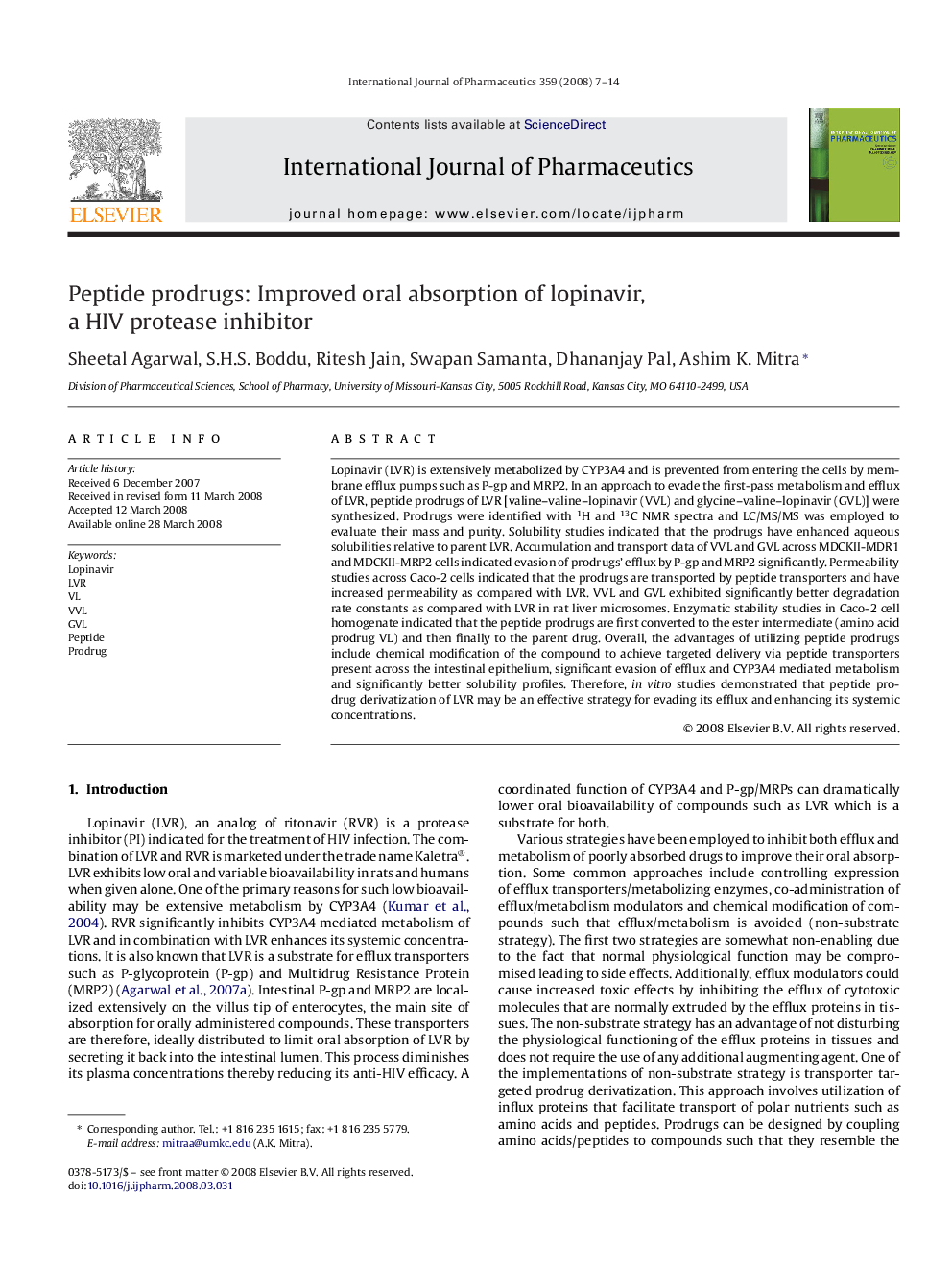| Article ID | Journal | Published Year | Pages | File Type |
|---|---|---|---|---|
| 2505332 | International Journal of Pharmaceutics | 2008 | 8 Pages |
Lopinavir (LVR) is extensively metabolized by CYP3A4 and is prevented from entering the cells by membrane efflux pumps such as P-gp and MRP2. In an approach to evade the first-pass metabolism and efflux of LVR, peptide prodrugs of LVR [valine–valine–lopinavir (VVL) and glycine–valine–lopinavir (GVL)] were synthesized. Prodrugs were identified with 1H and 13C NMR spectra and LC/MS/MS was employed to evaluate their mass and purity. Solubility studies indicated that the prodrugs have enhanced aqueous solubilities relative to parent LVR. Accumulation and transport data of VVL and GVL across MDCKII-MDR1 and MDCKII-MRP2 cells indicated evasion of prodrugs’ efflux by P-gp and MRP2 significantly. Permeability studies across Caco-2 cells indicated that the prodrugs are transported by peptide transporters and have increased permeability as compared with LVR. VVL and GVL exhibited significantly better degradation rate constants as compared with LVR in rat liver microsomes. Enzymatic stability studies in Caco-2 cell homogenate indicated that the peptide prodrugs are first converted to the ester intermediate (amino acid prodrug VL) and then finally to the parent drug. Overall, the advantages of utilizing peptide prodrugs include chemical modification of the compound to achieve targeted delivery via peptide transporters present across the intestinal epithelium, significant evasion of efflux and CYP3A4 mediated metabolism and significantly better solubility profiles. Therefore, in vitro studies demonstrated that peptide prodrug derivatization of LVR may be an effective strategy for evading its efflux and enhancing its systemic concentrations.
